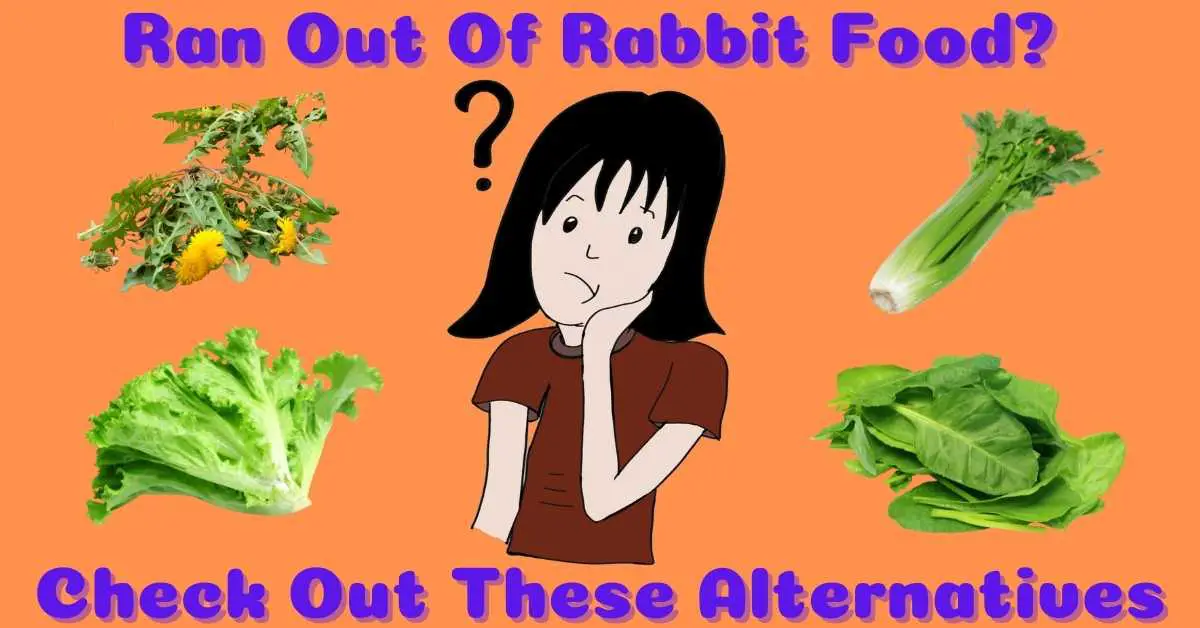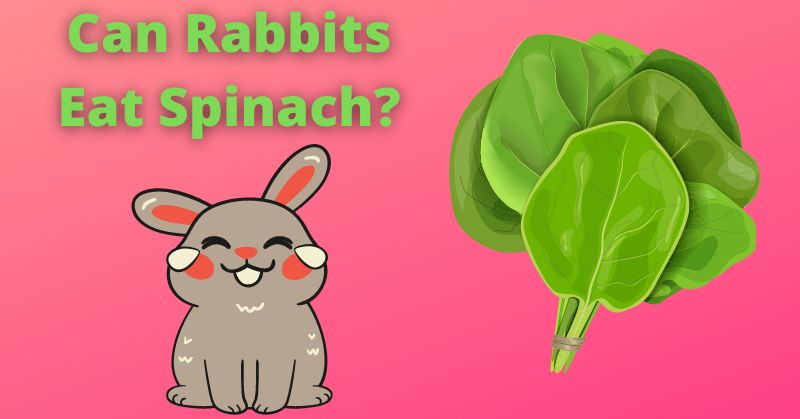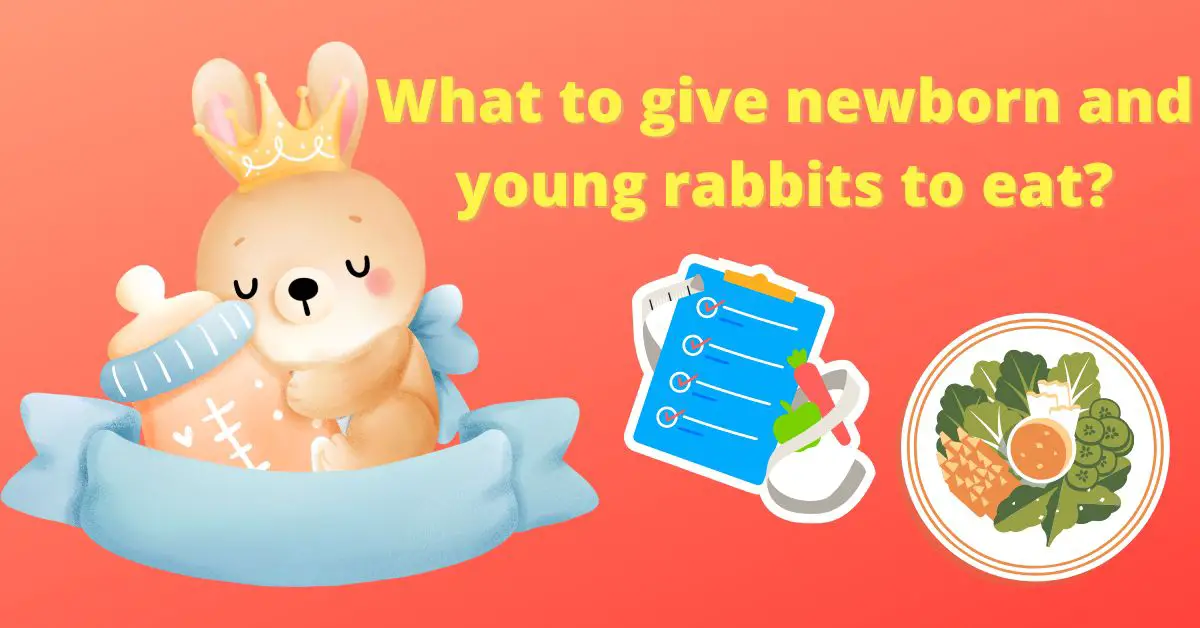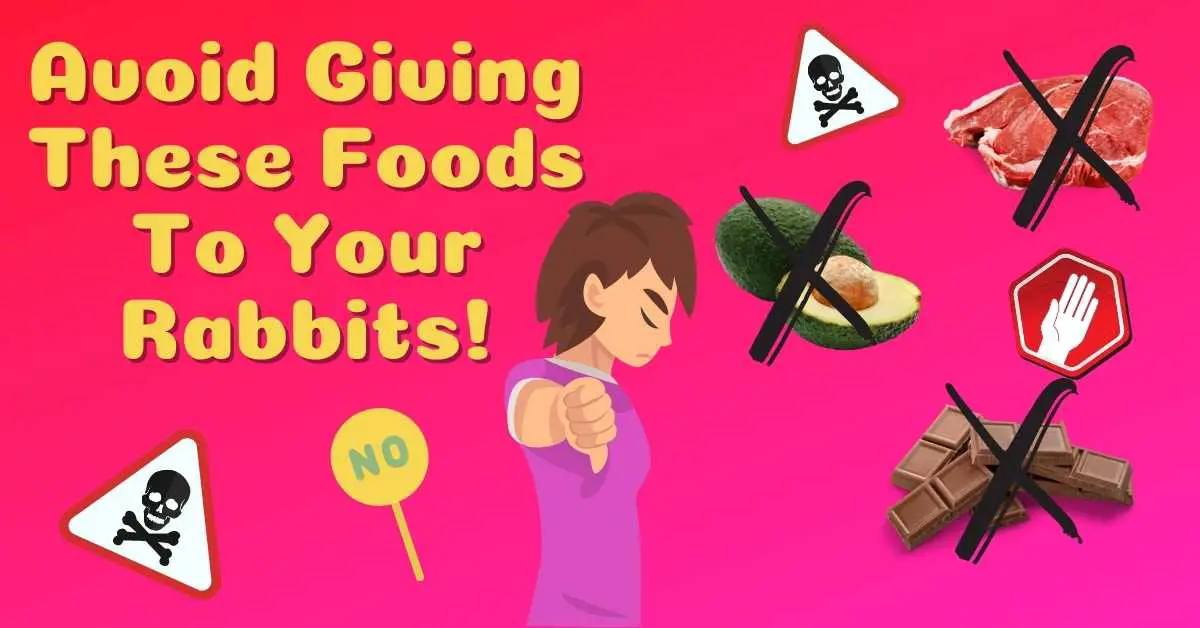Rabbits enjoy both fresh veggies and fruits as part of a balanced diet.
Your rabbit’s diet should mainly consist of fresh water and hay, 10-20% of the diet can also include fresh veggies and fruits including arugula, cilantro, blueberries, endives, carrots, carrot tops, apples, as well as most dark-leafy veggies. If you run out of rabbit food, try these fresh and healthy alternatives.
They’re relatively low in acid and sugar. However, they’re rich in fiber, vitamins, and minerals. Note that fresh foods should always be rotated so that your bunny is fed different nutrients. Keep in mind that not every rabbit is the same. Therefore, some may not be able to tolerate a rabbit diet consisting of veggies and fruits.
Below, I will share more rabbit food alternatives, so let’s take a look.
What Can I Feed My Rabbit If I Run Out Of Food? (Alternative rabbit food)
If you’ve run out of rabbit food, don’t fret! Your bunnies can enjoy many other healthy alternatives until their dried food finally arrives.
This section lists different veggies and fruits that can act as supplements to your bunny’s diet. They’re all rich in fiber, vitamins, and minerals that can benefit your bunny’s health.
Note that you should give a small amount of each new addition and wait for 24 hours. If your bunny has soft poop, remove the new addition and try something else from the list.
Furthermore, wait 5-7 days before making any new addition. Now, let’s take a look at the common fruits and veggies that bunnies enjoy!
Dandelion leaves
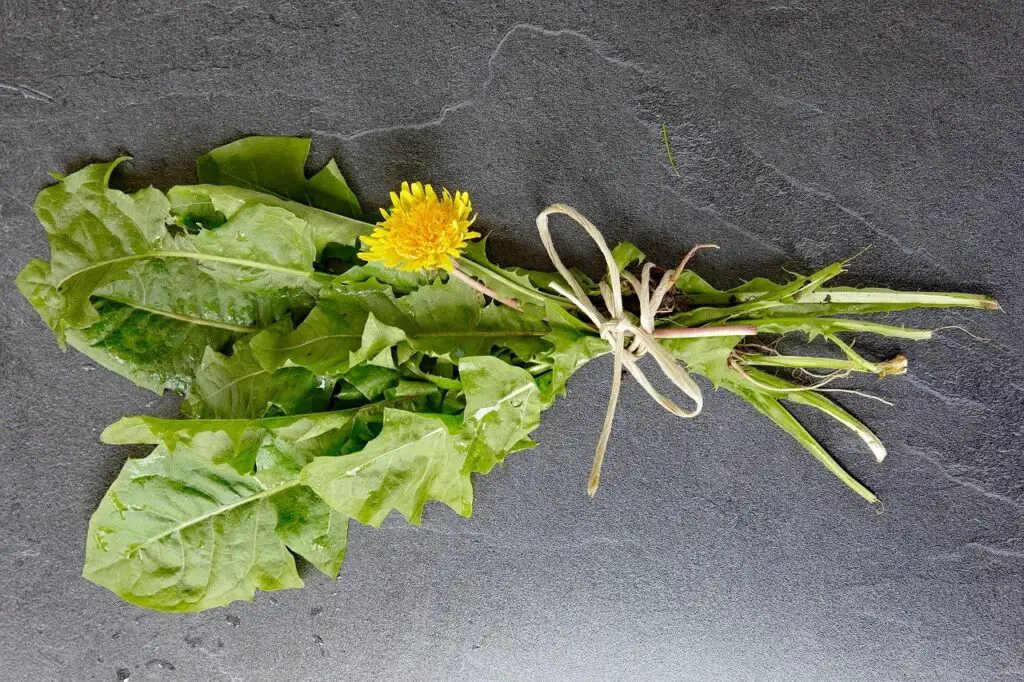
Dandelion leaves aren’t only a great addition to salads for people but make a great snack for bunnies as well. They’re widely available in the summer and spring periods in areas with low-road access. However, don’t pick those that may have been sprayed with chemicals.
Carrots
Rabbits enjoy carrots! However, never give your rabbit a whole carrot because carrots have high sugar content. Rabbits prefer sweeter foods like carrots but it’s highly important to provide them only in small amounts or as a treat. Too many carrots can cause digestive issues and obesity in rabbits.
Furthermore, never give your bunny the roots from the carrots because they’re also high in sugar. Other than the high sugar content, carrots provide a healthy dose of vitamin A so they’re perfect for eye health and it’s highly welcome in any bunny’s diet. You can also give your bunny carrot leaves or tops.
They’re both rich in vitamin A, vitamin, C, vitamin B6, vitamin K, thiamin, folate, potassium, manganese, and niacin. Radishes have similar content to carrots, meaning they’re high in sugar but their leaves make a perfect choice of fiber and other micronutrients. Mix carrot tops with other veggies daily.
Broccoli
Broccoli is rich in fiber and various nutrients. Thus, you can include the stem and all in your bunny’s diet. However, don’t overdo it because this veggie can be stressful for some bunnies’ digestive systems.
Lettuce

Leafier, darker, and more fibrous varieties of lettuce such as romaine lettuce will make a great addition to any bunny’s diet. They’re usually rich in fiber and nutrients like magnesium, phosphorus, potassium, calcium, vitamin K, folate, and vitamin C. Moreover, they’re low in calories and deliver hydration.
Important note: Stay away from light-colored lettuce, specifically iceberg lettuce because this vegetable contains a chemical known as lactucarium which can be lethal for bunnies if ingested. Furthermore, with any safe lettuce for bunnies, it’s crucial to give it to your pet gradually to prevent digestive issues.
Collard greens
Collard greens provide fiber and protein and very little sugar. So, they make a perfect snack for your pet. The best part? There aren’t any contraindications for feeding, therefore you can include collard greens in your bunny’s diet every day.
Celery
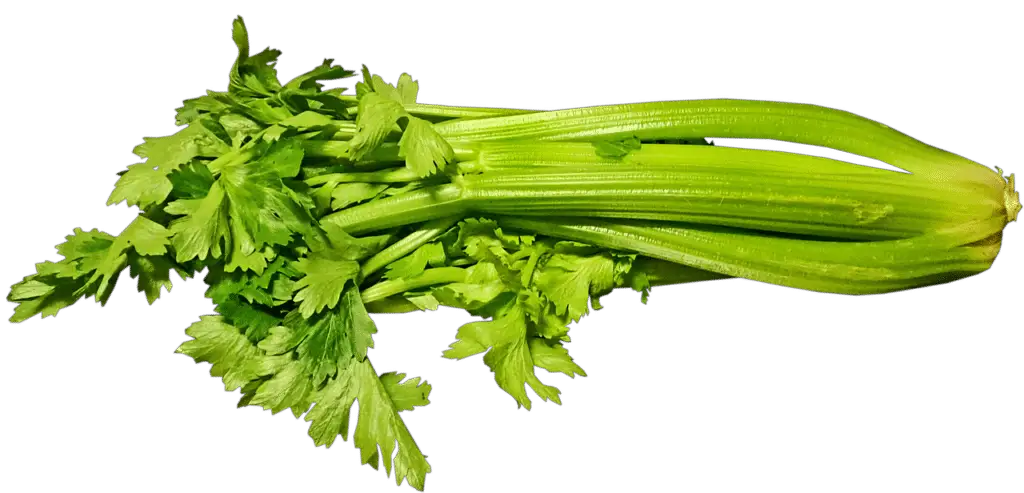
Celery stalks contain potassium, folic acid, vitamins B1, B2, and B6, and calcium. They’re safe for bunnies so you can freely include them in their daily fresh food intake.
They can decrease blood pressure, battle inflammation, and even prevent cancer. They’re also a perfect source of water for bunnies. You can also include celery leaves and tops in their diet.
Just make sure you wash your veggie properly and thoroughly before giving it to your rabbit. Stop giving your bunny celery if you notice any digestive issues in 24 hours.
Beet greens
The greens that typically get cast off from the tops of beets make a perfect addition to your rabbit’s diet. They’re high in magnesium, fiber, and iron.
Cilantro
Cilantro has a strong flavor. However, it’s safe and recommended for bunnies because it contains a lot of minerals and vitamins. It’s also low in calories but rich in zinc, niacin, iron, potassium, thiamin, vitamin A, vitamin E, vitamin C, vitamin K, vitamin B6, calcium, and riboflavin.
It’s a great rabbit food that benefits bunnies’ heart health. Start with small amounts and see if your bunny likes the cilantro. Wait for 24 hours before introducing the herb to your bunny again. Also, if you see anything unusual, such as soft poop, remove the cilantro from your pet’s diet.
Spinach
Also rich in fiber, vitamins, and minerals, spinach makes another great addition to your bunny’s diet. The best part? Thanks to the high fiber content, spinach will improve your bunny’s digestion.
Lemon balm
Lemon balm isn’t only safe for bunnies but it’s also highly recommended for these animals because it’s a super plant that will keep their health in check thanks to its viral and antibacterial properties.
It’s rich in tannins and polyphenols and helps ease anxiety, stress, diarrhea, bloating, and gas in bunnies. Start small and before you offer it daily to your pet, look out for any issues for the first 2 days.
Kale
Kale is another brassica family member that should be served in smaller amounts. It’s recommended for bunnies because of the high fiber content. Just rotate it with other leafy vegetables to keep your rabbit’s stomach happy and healthy.
Pineapple
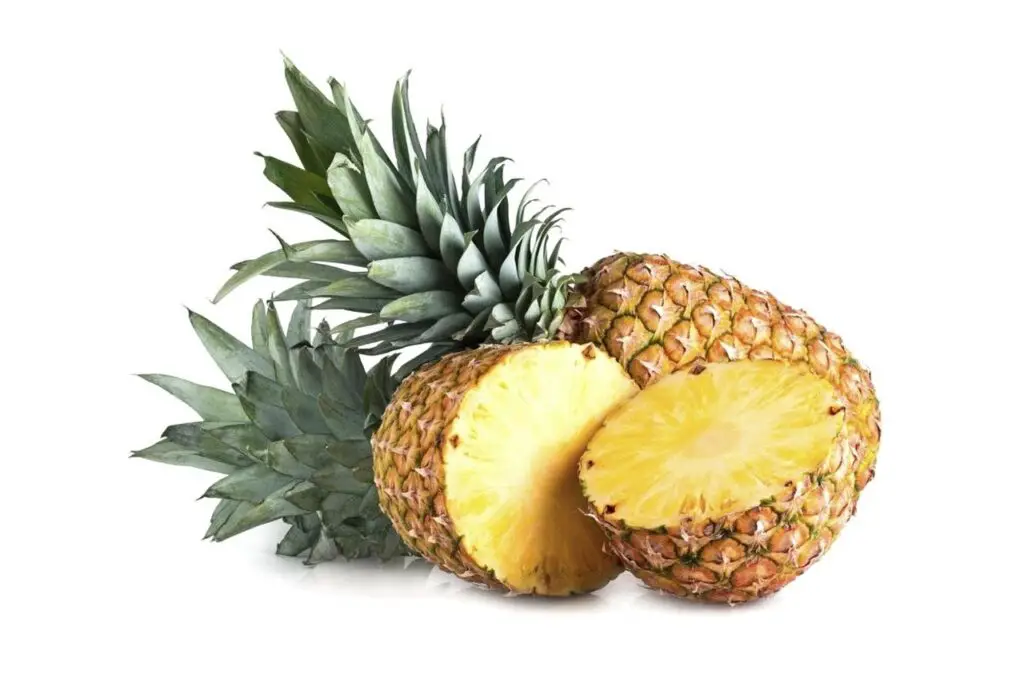
People usually toss the middle part of pineapples. However, what they don’t know is that this part of the fruit is rich in bromelain. This enzyme can ease diarrhea in bunnies and decrease the release of intestinal fluid. Avoid frozen pineapple and introduce the middle part of fresh pineapple in small amounts.
Mint
Although mint has a strong scent, it’s still suitable for rabbits. You can easily plant this herb in your yard or inside your home and serve a fresh portion to your bunny. It’s rich in fiber and grows quickly, so your rabbit and you will never go out of mint supply.
Blueberries
Although bunnies shouldn’t consume fruits with seeds, blueberries contain small seeds that won’t cause any harm to your pet’s digestive health.
However, if you’re still worried about the seeds, you can easily remove them and only feed the pulp. It’s rich in different minerals and antioxidants.
But here’s the kicker. Unlike most fruits, blueberries have low sugar content. They also deliver a steady release of energy, so they’re the perfect snack for rabbits.
1-2 fresh blueberries a day is enough for your rabbit. However, if you notice any problems like diarrhea, contact your vet right away.
Basil
Very popular in Mediterranean and Italian cuisine, basil makes a great snack for bunnies. However, keep in mind that not every bunny likes the smell of this herb. So, let your bunny decide if they enjoy it or not before you purchase basil in large amounts.
Bok choy
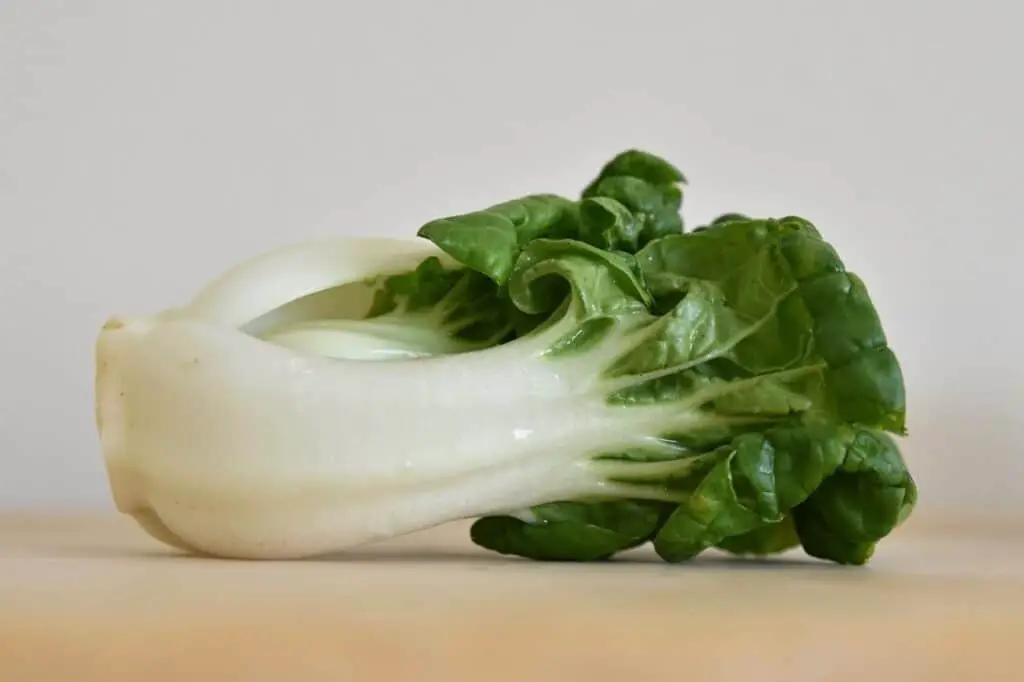
Bok choy contains low levels of oxalic acid. Therefore, it’s suitable for adult bunnies after they reach six months of age. Keep in mind that before six months, bunnies shouldn’t consume fresh foods.
Oatmeal
You can easily find oatmeal at a great price! It’s great for maintaining insulin levels as well as decreasing the risk of diabetes and insulin resistance. Oatmeal makes a perfect snack for underweight bunnies.
It’s rich in calories, therefore never give your adult rabbit more than just a couple of grains of raw rolled oats as a treat occasionally. Otherwise, your pet can become overweight and experience lung and heart issues, diabetes, and fatty liver disease. Also, never feed bunnies any cooked food including oatmeal.
Arugula
Last but certainly not least, I have arugula, a dark-green salad veggie that’s available in almost all stores and supermarkets. It’s rich in calcium which promotes stronger teeth and bones in bunnies. It’s also rich in vitamin B9 or folic acid, which helps prevent health issues in bunnies.
Arugula also contains smaller amounts of water, fiber, and protein. Feed your bunny smaller portions 2-3 times a week.
Other alternatives for rabbit food include bell peppers (avoid spicy peppers and always remove the seeds), asparagus, apples, and endives among many others.
Final Tips
If your rabbit doesn’t like or tolerate fresh veggies and fruits, don’t worry!
Hay which should make up 80-90% of a rabbit diet contains vitamins A and D, calcium, protein, and other important nutrients. You don’t have to stress about your bunny’s vitamin C intake either. Unlike people who get vitamin C from their diet, bunnies generate their vitamin C naturally.

